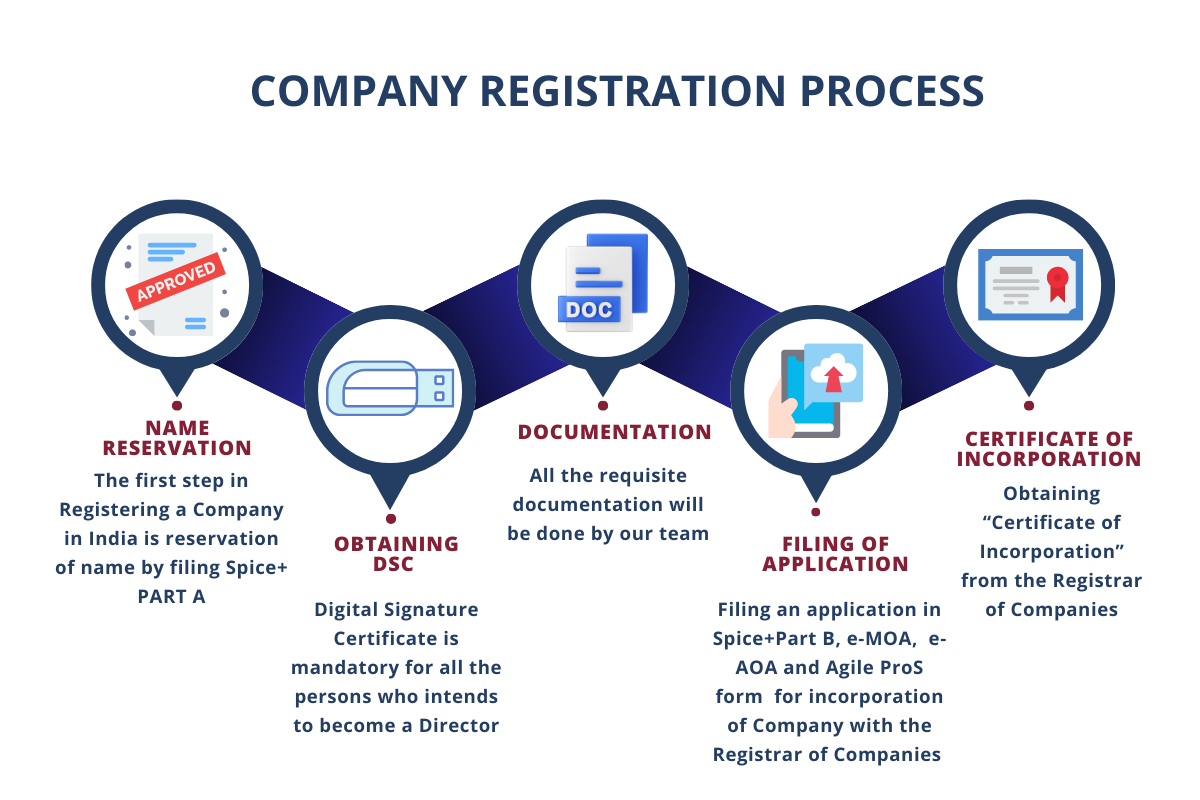Healthcare Company Registration
The healthcare sector of India is one of the largest and fastest growing economic sectors of the country and comprises a variety of segments, including hospitals, medical devices and equipment, clinical trials, outsourcing & telemedicine, health insurance, and medical tourism.
Healthcare services in India are cost-effective besides being of high quality, as compared to Asia and Western countries, which has resulted in significant medical tourism in India.
India’s healthcare delivery system is categorized into two major components - public and private. The public healthcare system, comprises limited secondary and tertiary care institutions in key cities and focuses on providing basic healthcare facilities in the form of primary healthcare centers (PHCs) in rural areas. The private sector provides a majority of secondary, tertiary, and quaternary care institutions with major concentration in metros, tier-I and tier-II cities.
The Indian healthcare sector is expected to grow at a CAGR of 22% between 2016–22 to reach US$ 372 billion in 2022 from US$ 110 billion in 2016. In the Economic Survey of 2022, India’s public expenditure on healthcare stood at 2.1% of GDP in 2021-22 against 1.8% in 2020-21 and 1.3% in 2019-20.
Minuimum Requirements for Healthcare Company Registration
-
Minimum 2 shareholders
-
One of the Directors must be Indian Resident
-
DSC(Digital Signature Certificate) for two directors
-
Minimum 2 Directors
-
No Minimum Authorised Share Captial
-
The directors and the shareholders can be same person
-
DIN(Director Identification number) for 2 Directors

Documents Required for Private Limited Company Registration
- Copy of PAN (in case of resident); OR PAN Declaration (in case of Non Resident)
- Copy of Passport (in case of non-resident);
- Declaration in Form INC-9 for First Directors*
- Copy of proof of identity(Voters ID/Driving License/Passport);
- Copy of residential proof (Bank Statement/Telephone Bill/ Mobile Bill/ Gas Bill not older than 2 months);
- Consent to act as directors*;
- Disclosure of interest in other entities*;
From Directors
- Copy of Sale deed/ Property Deed (in case of owned property) or Lease Deed (in case of rented premises);
- Copy of Telephone or Mobile/Electricity or Gas Bill of registered office (Any one, not older than 2 months) ;
- No-objection Certificate from the owner of the premises for its use as registered office*;
- Memorandum and Articles of Association*
From Company
- Copy of PAN (in case of resident);
- Copy of Passport (in case of non-resident);
- Copy of proof of identity (Voter\'s ID/Driving License/Passport);
- Copy of residential proof (Bank Statement/ Telephone Bill/ Mobile Bill/Gas Bill not older than 2 months);
From Subscribers
Note 1: In case of foreign directors/subscribers, all the aforesaid documents should be notarized and apostilled or consularized. In case documents are not in english, translated copy in english should be notarized and apostiled or consularized. please read the attestation requirements of documents below in FAQs
Note 2: *Draft will be provided by our team
Note 3: Following additional documents will be required in case the subscriber of the company to be incorporated is another company: • Copy of resolution passed by the subscriber company; • Certificate of Incorporation of the Subscriber Company.
Advantages of a Private Limited Company Formation
Separate Legal entity
As a juristic legal person, both the company and its members have separate legal identity that is distinct from each other.
Perpetual Succession
A company existence is uninterrupted, even the death or insolvency of shareholder(s)/ directors cannot affect the continuity of business of the company.
Limited Liability
The liability of members of a private limited company is limited to the amount of share capital remaining unpaid on the shares held by them.
Easy transferability of ownership
The ownership in a private limited company is easily transferable by way of transfer of shares from one member to another subject to the restriction that the total number of members of a private limited company cannot exceed 200.
FDI Allowed
In Private Limited Comapny, 100% Foreign Direct Investment is allowed that means any foreign entity or foregin person can directly invest in a Private Limited Company.
Builds Cerdibility
The particulars of the company are the available on a public database. Which improves the cerdibility of the company as it makes it easy to authenticate the details.
Frequently Asked Questions
Download

Download Business Guide
This guide provides detailed information about the India Ecosystem, tax structure, major compliance etc. It helps entrepreneurs understand how to start and grow their business in India.

